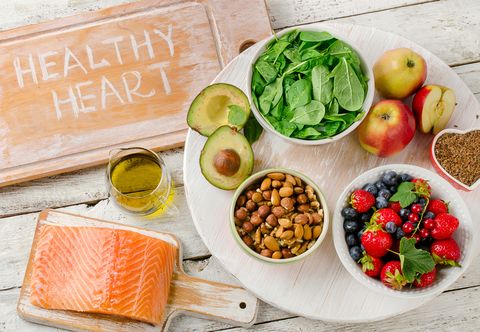As technology continues to advance, our lives have become increasingly sedentary and reliant on convenience foods. This shift in lifestyle has contributed to a rise in heart disease and other chronic health conditions. However, the good news is that by making simple changes to our diet, we can greatly improve our heart health and overall well-being.
Understanding the Connection between Diet and Heart Health
The food we eat plays a crucial role in our cardiovascular health. A diet high in saturated fats, trans fats, and cholesterol can lead to the build-up of plaque in our arteries, increasing the risk of heart disease and stroke. On the other hand, a diet rich in fruits, vegetables, whole grains, and lean proteins can help lower cholesterol levels, reduce blood pressure, and promote heart health.
The Benefits of a Healthy Diet for Heart Health
By adopting a heart-healthy diet, you can significantly reduce your risk of developing heart disease and improve your overall quality of life. Some of the benefits of a healthy diet for heart health include:
Lowering cholesterol levels
Reducing blood pressure
Managing weight
Improving blood sugar levels
Reducing inflammation
Key Nutrients for Heart Health
When it comes to heart health, there are several key nutrients that play a crucial role in maintaining cardiovascular health. These include:
Omega-3 fatty acids: Found in fatty fish, flaxseeds, and walnuts, omega-3 fatty acids can help reduce inflammation and improve heart health.
Antioxidants: Found in fruits, vegetables, and nuts, antioxidants can help prevent oxidative stress and protect the heart from damage.
Fiber: Found in whole grains, fruits, and vegetables, fiber can help lower cholesterol levels and improve heart health.
Plant sterols: Found in nuts, seeds, and vegetable oils, plant sterols can help lower cholesterol levels and reduce the risk of heart disease.
Tips for Eating a Heart-Healthy Diet
Here are some practical tips for incorporating heart-healthy foods into your daily diet:
Choose lean proteins such as poultry, fish, and legumes over red meat.
Incorporate at least 5 servings of fruits and vegetables into your daily meals.
Opt for whole grains such as brown rice, quinoa, and whole wheat bread over refined grains.
Avoid processed foods, sugary beverages, and high-sodium foods.
Limit your intake of saturated fats and trans fats, found in fried foods and baked goods.
Conclusion
In conclusion, a healthy diet is essential for maintaining optimal heart health. By incorporating nutrient-rich foods into your daily meals and making smart food choices, you can reduce your risk of heart disease and improve your overall well-being. Remember, your heart is a muscle that needs proper nourishment to function at its best. Start making small changes today to support your heart health for years to come.
Together, let’s prioritize our heart health by fueling our bodies with the nutrients they need to thrive!

